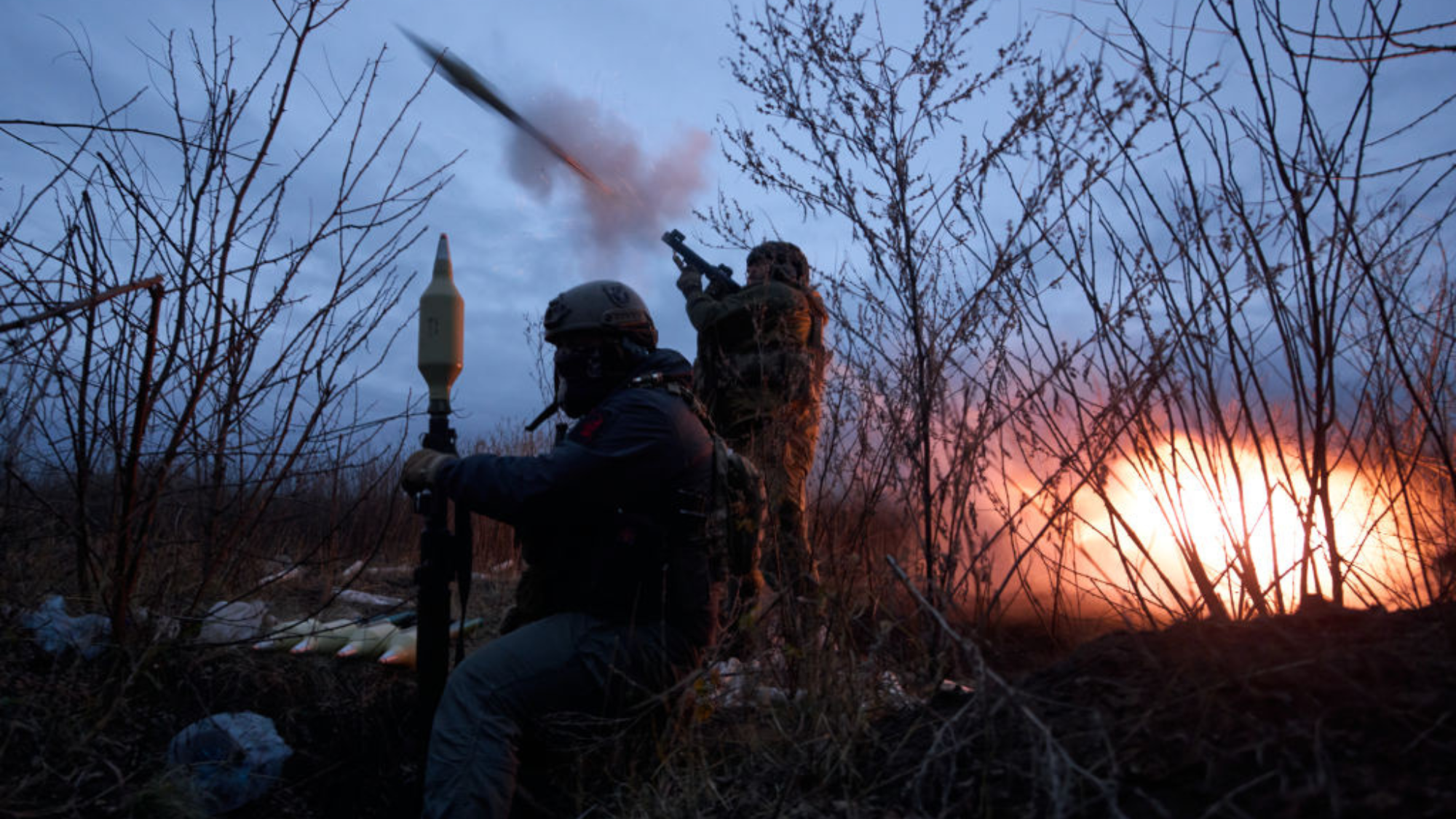Ukraine's counteroffensive: has it failed?
Russia-Ukraine war has entered period of 'static, attritional warfare'

A free daily email with the biggest news stories of the day – and the best features from TheWeek.com
You are now subscribed
Your newsletter sign-up was successful
"It's not easy to say this", said Nicholas Drummond in The Spectator, but Ukraine's counteroffensive, launched five months ago with the aim of retaking swathes of lost territory, "has fizzled out".
With "autumnal weather" turning "the rolling steppe into a sea of mud", the conflict has re-entered a phase of "static, attritional warfare", and any fresh attempt to break through Russian lines will now have to wait until at least April.
There are clear reasons for this "failure". One is that Russia's defensive line has proved surprisingly impenetrable, with "minefields that run nearly a mile deep in some places"; and Kyiv has neither the specialist kit needed to clear a path nor enough armoured vehicles to "attack with mass".
The Week
Escape your echo chamber. Get the facts behind the news, plus analysis from multiple perspectives.

Sign up for The Week's Free Newsletters
From our morning news briefing to a weekly Good News Newsletter, get the best of The Week delivered directly to your inbox.
From our morning news briefing to a weekly Good News Newsletter, get the best of The Week delivered directly to your inbox.
Another is that President Putin is committed to conquering Ukraine at any cost, because his own survival depends on it. He doesn't care how many people die in this war. All that matters to him is that Kyiv runs out of "cannon fodder" first.
Stalemate
Ukraine's own commander in chief, General Zaluzhnyi, has warned that the war is heading into a stalemate, said The Observer – and that this will give the upper hand to Russia, with its greatether resources and manpower. Meanwhile, Putin has been intensifying his aerial strikes, targeting Ukraine's energy infrastructure to heap further pressure on Ukrainian civilians this winter.
President Zelenskyy has rejected the stalemate suggestion: he wants his allies to be realistic about what Kyiv can achieve, but he cannot afford for either them, or his people, to feel that the situation is hopeless.
Fortunately, the White House is determined to "keep faith", not least because of fears that a Russian victory in Ukraine would imperil other countries. Earlier this month, Putin's ally Dmitry Medvedev warned Poland that it was seen in Moscow as a "dangerous enemy". But US Republicans have sought to block aid to Ukraine, citing its lack of battlefield progress.
A free daily email with the biggest news stories of the day – and the best features from TheWeek.com
'Perilous moment'
Without more weapons, Kyiv faces a "perilous moment" in the spring, when Russia will have re-armed and called up more troops, said The Daily Telegraph.
So it is frustrating for Zelenskyy that the West's focus has shifted to the Middle East. He has long been fearful that his allies will lose interest in Kyiv's plight – which is, of course, what Putin has been hoping for.
It is another reason why the West must do what it can to stop the Israel-Hamas war escalating. If Nato states are drawn into a wider conflict in the Middle East, Ukraine will come under pressure to agree a negotiated settlement – and Putin, and other autocrats, will be "the beneficiaries".
-
 Local elections 2026: where are they and who is expected to win?
Local elections 2026: where are they and who is expected to win?The Explainer Labour is braced for heavy losses and U-turn on postponing some council elections hasn’t helped the party’s prospects
-
 6 of the world’s most accessible destinations
6 of the world’s most accessible destinationsThe Week Recommends Experience all of Berlin, Singapore and Sydney
-
 How the FCC’s ‘equal time’ rule works
How the FCC’s ‘equal time’ rule worksIn the Spotlight The law is at the heart of the Colbert-CBS conflict
-
 Corruption: The spy sheikh and the president
Corruption: The spy sheikh and the presidentFeature Trump is at the center of another scandal
-
 Putin’s shadow war
Putin’s shadow warFeature The Kremlin is waging a campaign of sabotage and subversion against Ukraine’s allies in the West
-
 Alexei Navalny and Russia’s history of poisonings
Alexei Navalny and Russia’s history of poisoningsThe Explainer ‘Precise’ and ‘deniable’, the Kremlin’s use of poison to silence critics has become a ’geopolitical signature flourish’
-
 The fall of the generals: China’s military purge
The fall of the generals: China’s military purgeIn the Spotlight Xi Jinping’s extraordinary removal of senior general proves that no-one is safe from anti-corruption drive that has investigated millions
-
 US, Russia restart military dialogue as treaty ends
US, Russia restart military dialogue as treaty endsSpeed Read New START was the last remaining nuclear arms treaty between the countries
-
 What happens now that the US-Russia nuclear treaty is expiring?
What happens now that the US-Russia nuclear treaty is expiring?TODAY’S BIG QUESTION Weapons experts worry that the end of the New START treaty marks the beginning of a 21st-century atomic arms race
-
 Epstein files topple law CEO, roil UK government
Epstein files topple law CEO, roil UK governmentSpeed Read Peter Mandelson, Britain’s former ambassador to the US, is caught up in the scandal
-
 Iran and US prepare to meet after skirmishes
Iran and US prepare to meet after skirmishesSpeed Read The incident comes amid heightened tensions in the Middle East